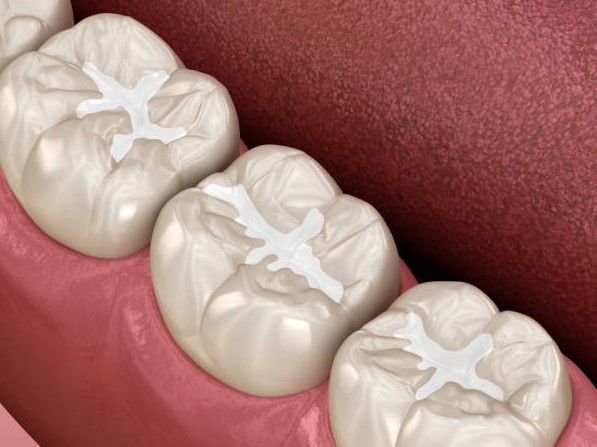There are four main types of teeth in the human mouth, each with a specific function:
- Incisors: The eight incisors are located at the front of the mouth, four on the upper jaw and four on the lower jaw. They have a thin, sharp edge that is used for biting into and cutting food. Incisors are also important for speech, as they help to shape sounds.
- Canines: The four canines are located next to the incisors, two on the upper jaw and two on the lower jaw. They have a long, pointed shape that is used for tearing and grasping food. Canines are also important for defense and social interaction in some animals.
- Premolars: The eight premolars are located between the canines and molars, four on the upper jaw and four on the lower jaw. They have a flat surface with ridges that are used for grinding and crushing food.
- Molars: The twelve molars are located at the back of the mouth, six on the upper jaw and six on the lower jaw. They have a broad, flat surface with multiple ridges that are used for grinding and crushing food. Molars are also important for maintaining the height of the face and supporting the jaw.
These four main types of teeth, humans may also have wisdom teeth, also known as third molars, located at the back of the mouth. However, not everyone develops wisdom teeth and they may need to be removed if they cause problems.
What is the normal age for a baby to get teeth?
The age at which babies get their first teeth of baby can vary, but typically the first teeth begin to emerge between the ages of 6 and 10 months. However, some babies may start teething earlier or later, with some beginning as early as 3 months and others not getting their first tooth until after their first birthday.
The order in which teeth erupt can also vary, but generally the two lower front teeth, also known as the central incisors, are the first to appear, followed by the two upper front teeth. The next types of teeth to emerge are usually the lateral incisors, followed by the first molars and then the canines.
By the age of 3, most children will have a full set of 20 primary teeth. These teeth will eventually fall out to make way for permanent teeth, which will begin to emerge around the age of 6 or 7. It is important to start taking care of your child’s teeth as soon as they emerge to help establish good oral hygiene habits and promote healthy teeth and gums.
At what age of teeth falls out
The age at which teeth fall out varies depending on the type of tooth and the individual. Here are some general guidelines:
- Baby Teeth: Baby teeth, also known as primary teeth, usually begin to fall out around the age of 6 or 7. This process continues until around age 12 or 13 when all of the baby teeth have been replaced by permanent teeth.
- Permanent Teeth: Permanent teeth typically begin to emerge around the age of 6 or 7 and continue to erupt until around age 21. The order in which permanent teeth emerge can vary, but generally, the first permanent molars come in around age 6, followed by the central incisors and then the lateral incisors.
- Wisdom Teeth: Wisdom teeth, also known as third molars, typically emerge between the ages of 17 and 25. However, not everyone develops wisdom teeth and some people may need to have them removed if they cause problems.
It is important to note that the timeline for tooth eruption and loss can vary from person to person and may be influenced by factors such as genetics, nutrition, and overall health. Regular Total dental care with checkups can help to monitor the development of teeth and identify any potential issues.
How Many Teeth in Human Mouth
Here’s the number of teeth in human mouth:
The human mouth contains two sets of teeth – primary (baby) teeth and permanent teeth. Primary teeth begin to emerge around the age of 6 months and are gradually replaced by permanent teeth starting around age 6 or 7.
On average, adults have 32 permanent teeth, including 8 incisors, 4 canines, 8 premolars, and 12 molars (including 4 wisdom teeth). However, not everyone develops wisdom teeth, and some people may have them removed due to problems such as impaction or crowding.
Children have 20 primary teeth, which start to emerge around the age of 6 months and are gradually replaced by permanent teeth over the course of several years. The primary teeth include 8 incisors, 4 canines, and 8 molars.
Maintaining good oral hygiene, including regular brushing and flossing, can help to keep teeth healthy and prevent common problems such as cavities and gum disease. Regular dental check-ups and cleanings can also help to identify and address any issues before they become more serious.




